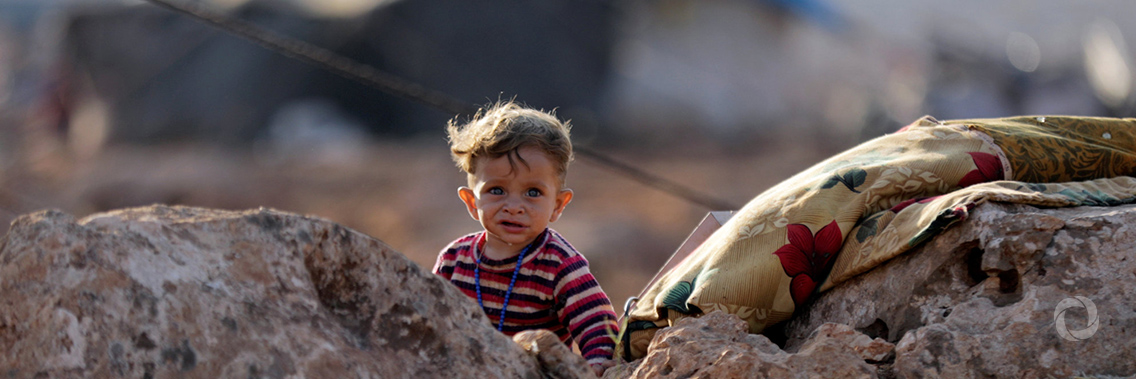As Syria marks eight years of unrelenting crisis, some three million Syrians in Idlib face an especially bleak and uncertain future.
Hundreds of civilians are believed to have been killed in violence since the start of the year, with Islamic Relief’s mobile emergency teams alone treating some 30 civilians who suffered war-related injuries in recent weeks.
Despite a temporary truce coming into force in Greater Idlib in September, more than 200,000 people are thought to have been displaced there in the six months since. Camps in Idlib – currently home to more than 190,000 people – are already bursting at the seams, with conditions deteriorating as aid supplies dwindle and the international community shifts its attention elsewhere.
Naser Haghamed, CEO of Islamic Relief, said: “The crisis in Syria is far from over and for more than three million people in Idlib there is still no end to this living nightmare.
“After eight years, people in Idlib increasingly feel like the international community has forgotten about them. They have no idea what will happen to them next or when or if they will ever be able to go home or if they and their families will live to see an end to this barbaric crisis.”
Violence has reduced since September, but should a fresh assault begin, the decimated healthcare system will be unable to cope.
Medicine shortages are rife, and insufficient clean water and electricity make even routine surgery potentially deadly, with chronic shortages of anesthetics meaning people often only receive partial pain relief during operations. Many doctors and medical staff have fled the country, while those who remain are often not being paid, forcing them to charge patients for their treatment.
Treatable diseases like pneumonia are rampant and people cannot access proper care for illnesses like cancers and kidney issues.
Islamic Relief has supported medical staff and medical facilities, but major hospitals and facilities have had to close or severely cut back their services.
Haghamed added: “There is a huge sense of panic now in Idlib as more health facilities are forced to close and people are dying or suffering in acute pain because they cannot get the treatment they need. Once again, it’s the beleaguered civilians who are finding themselves under attack on all fronts. Wherever they are and regardless of who is controlling them, people must have access to life-saving healthcare and the international community must step up to ensure that aid continues to reach those in crisis.”
Islamic Relief provides lifesaving humanitarian aid and assistance in Idlib, and are one of the last major international NGOs still operating on the ground. Last year alone, the organization reached nearly 2.5 million people in Syria, and provided extensive support to Syrian refugees in Lebanon, Jordan and Iraq.
Original source: Islamic Relief
Published on 13 March 2019

